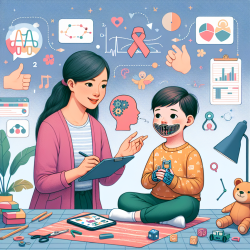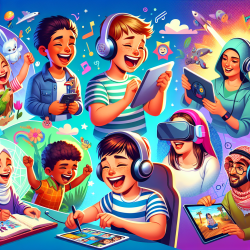Introduction
In recent years, the conversation around video games has shifted from viewing them solely as a form of entertainment to recognizing their potential impact on psychological health. The research article titled "Gamers’ and non-gamers’ perspectives on the development of problematic video game play" provides valuable insights into how video games can meet basic psychological needs, and how unmet needs can lead to problematic gaming. This blog will explore how speech-language pathologists and other practitioners can apply these findings to improve outcomes for children.
The Role of Video Games in Meeting Psychological Needs
According to Self-Determination Theory (SDT), individuals have three basic psychological needs: autonomy, competence, and relatedness. Video games, with their immersive environments and interactive nature, are well-suited to satisfy these needs:
- Autonomy: Video games allow players to make choices and influence outcomes, providing a sense of control and agency.
- Competence: Games offer challenges and opportunities for skill development, fostering a sense of achievement and mastery.
- Relatedness: Multiplayer games and online communities enable social connections and a sense of belonging.
For children, especially those facing challenges in their daily lives, video games can be a valuable tool for meeting these psychological needs.
Understanding Problematic Gaming
While video games can be beneficial, reliance on them to meet psychological needs can lead to problematic gaming. The research highlights that problematic gaming often arises when individuals with unmet needs in their daily lives turn to video games as their primary means of fulfillment. This can result in issues such as gaming to escape responsibilities, low self-esteem, and social isolation.
As practitioners, it is crucial to recognize the signs of problematic gaming and understand the underlying psychological needs that may be unmet. By addressing these needs, practitioners can help children develop healthier relationships with video games and improve their overall well-being.
Applying Research Insights in Practice
Here are some strategies practitioners can implement to leverage the positive aspects of video games while mitigating the risks of problematic gaming:
- Encourage Balanced Gaming: Help children set limits on gaming time and encourage a balance between gaming and other activities that fulfill their psychological needs.
- Promote Real-World Competence: Support children in developing skills and achieving goals outside of gaming to enhance their sense of competence and self-worth.
- Facilitate Social Connections: Encourage children to engage in social activities and build relationships outside of the gaming environment to satisfy their need for relatedness.
- Identify and Address Unmet Needs: Work with children to identify any unmet psychological needs and develop strategies to meet these needs in healthy ways.
Encouraging Further Research
While the research provides valuable insights, there is still much to learn about the complex relationship between video games and psychological needs. Practitioners are encouraged to engage in further research and contribute to the growing body of knowledge in this area. By doing so, we can continue to refine our approaches and create better outcomes for children.
Conclusion
Video games have the potential to meet important psychological needs for children, but they also pose risks when relied upon too heavily. By understanding the dynamics of problematic gaming and applying research insights in practice, practitioners can help children achieve a healthier balance and improve their overall well-being.
To read the original research paper, please follow this link: Gamers’ and non-gamers’ perspectives on the development of problematic video game play.










